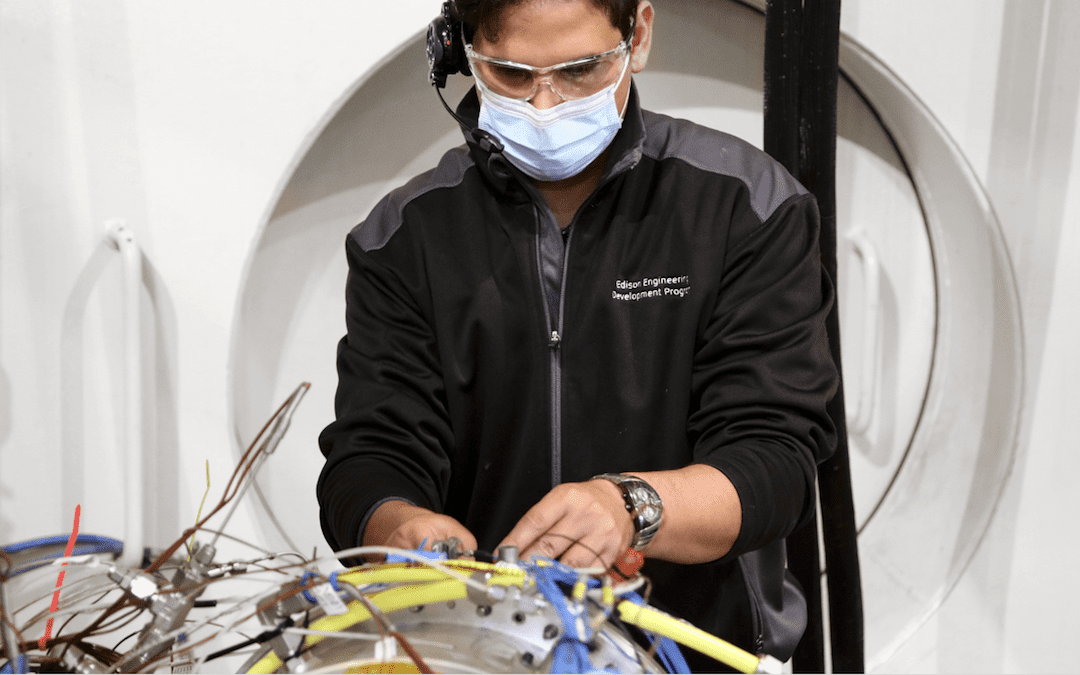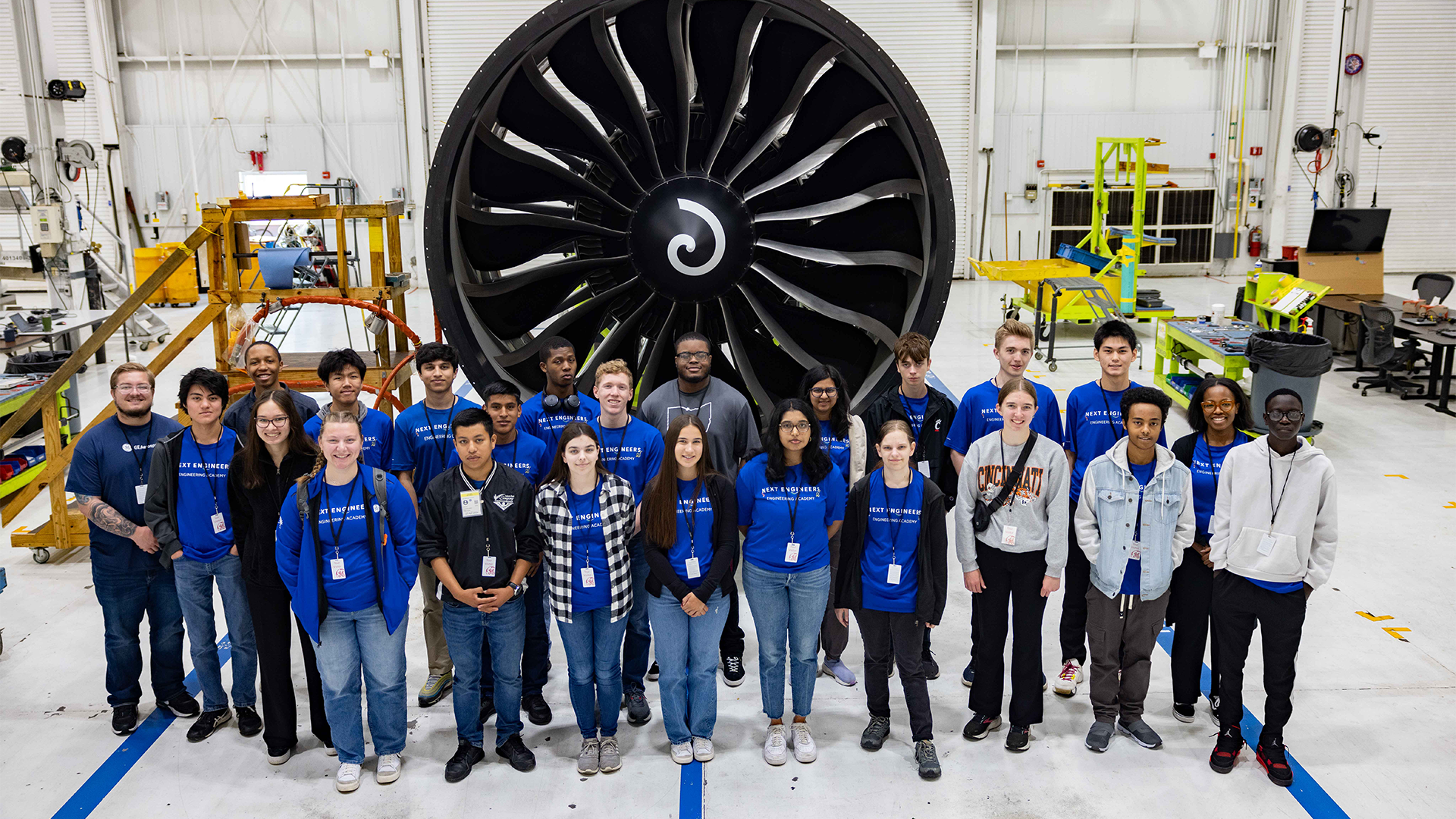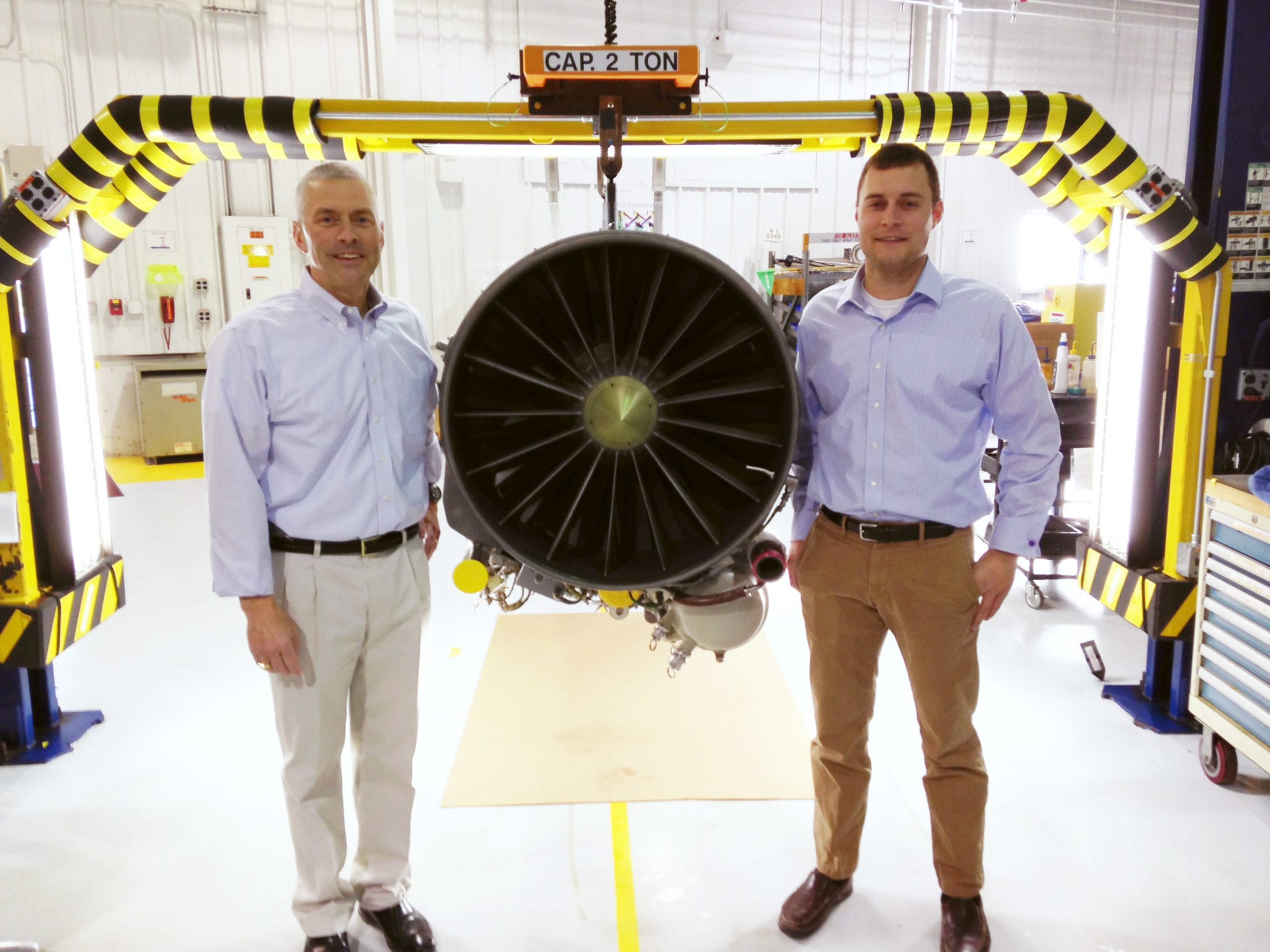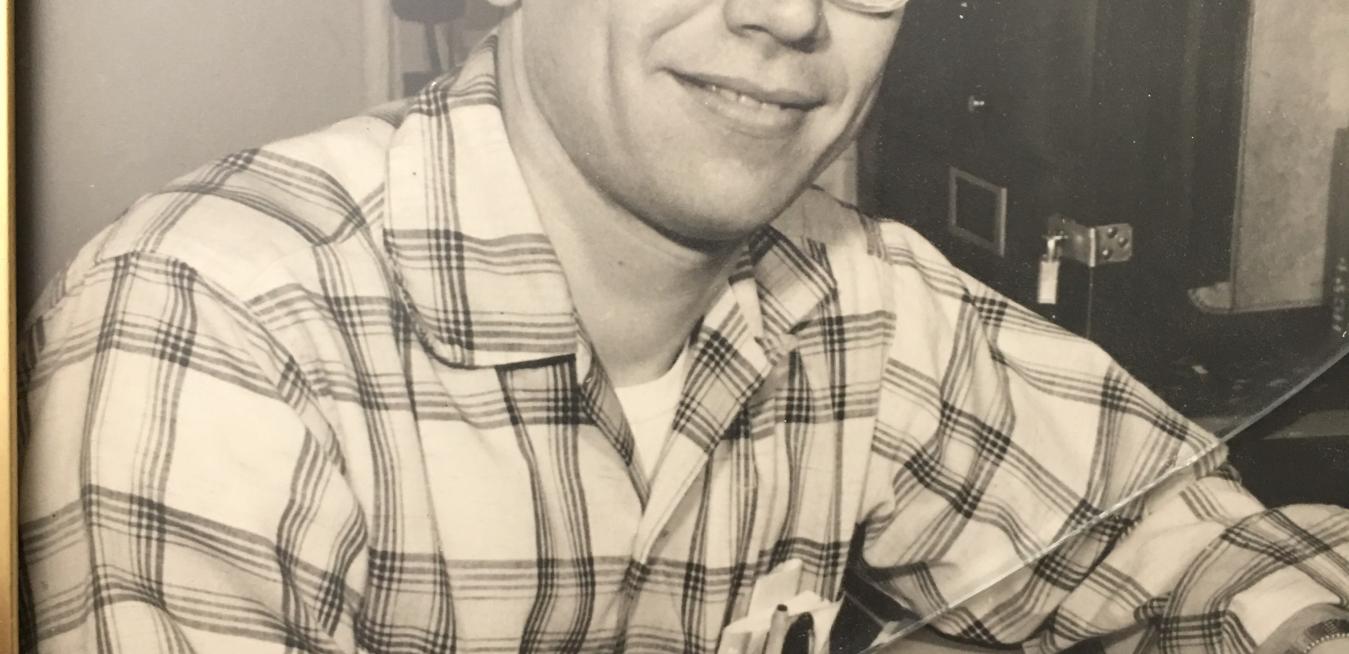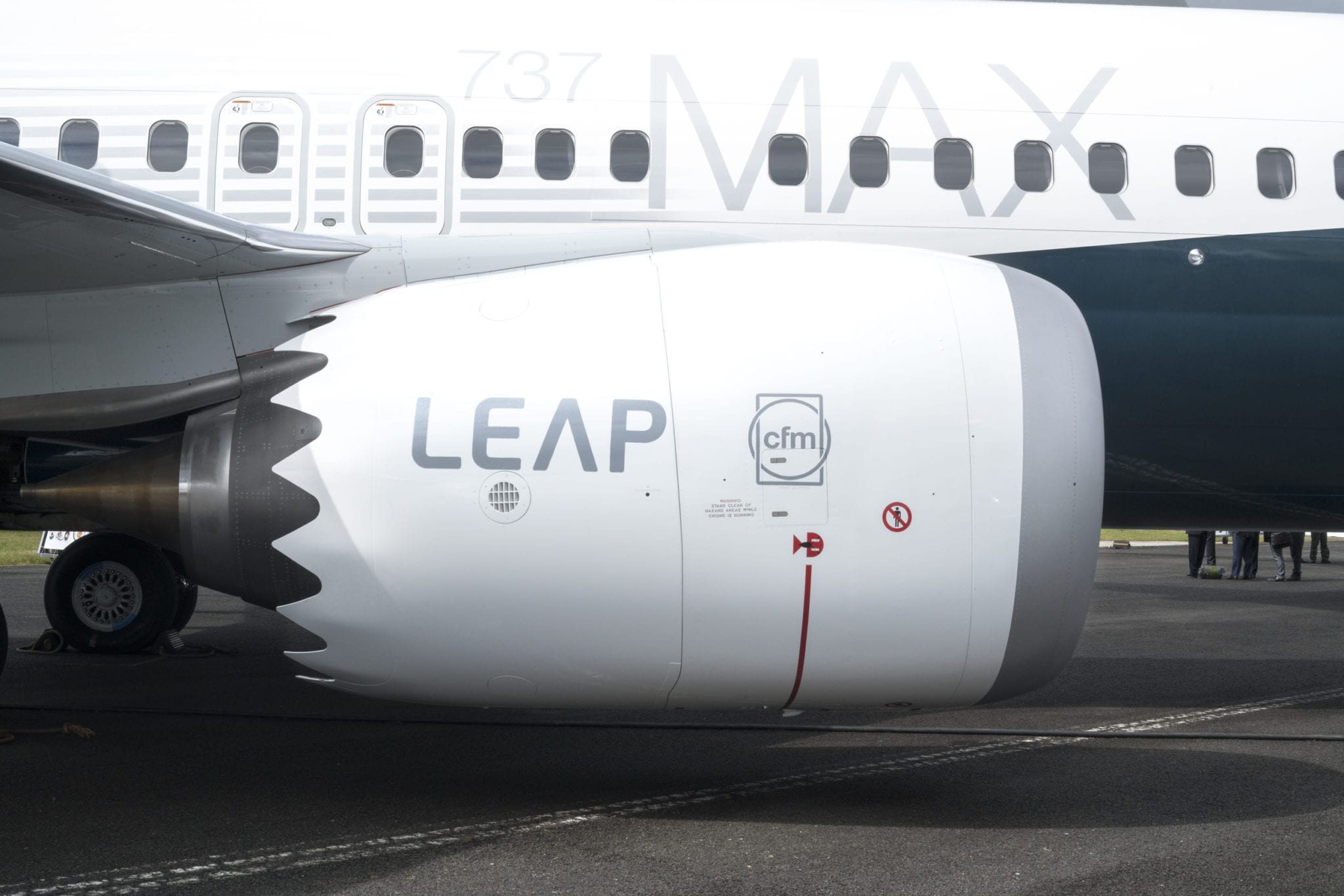How Four Engineers in Bengaluru Are Helping Students in Need Pursue Careers Through STEM Education
September 24, 2025 | by Chris Norris
When the GE Aerospace Foundation selected Bengaluru as one of the new locations for Next Engineers, its college readiness program, the decision was based on more than the facility’s formidable engineering presence in the region. While GE Aerospace’s Bengaluru Technology Centre has indeed been at the heart of India’s commercial aviation industry for a quarter century now, its commitment to volunteer work has enabled the employees to distinguish themselves for just as long — and in lasting ways that are deeply felt in the local community.
The core volunteers who will direct the Next Engineers program in Bengaluru embody a deep sense of purpose and compassion. Having personally faced many of the challenges that young people in low-income families in India encounter when starting their STEM journeys, they bring heartfelt empathy and long-term commitment that are rare in any global tech center. “I witness this spirit daily in the powerful ways our teams engage with communities, transforming lives far beyond our labs and cubicles,” says Satya Reddy, leader of GE Aerospace’s volunteer program in India, which for nearly 20 years has built classrooms, labs, and digital infrastructure, helping to guide promising low-income and differently abled students.
The GE Aerospace Foundation has partnered with United Way Bengaluru to launch the newest chapter of the Next Engineers program with the help of volunteers based at the Bengaluru Technology Centre. The program — which will include an Engineering Discovery cohort for early secondary school students, as well as an Engineering Academy for older students preparing for higher education — aims to help increase access to STEM education for young people and encourage them to pursue careers in engineering.
“Bengaluru was selected as a global expansion location because of our company’s long-standing and very strong engineering presence, and rich history of volunteering in the local community,” says Luana Iorio, general manager of engineering sciences at GE Aerospace and global sponsor of the Next Engineers program. “Next Engineers is proud to have Bengaluru join sites in the United States, South Africa, the United Kingdom, and Poland to engage and inspire future generations of engineering professionals.”
“Next Engineers is part of our ongoing commitment to inspire the next generation of engineering talent, and I am thrilled to see this initiative launch in Bengaluru,” says Alok Nanda, GE Aerospace’s chief technology officer in India. “Our employees have a proud legacy of volunteering in STEM education, and their passion and dedication will undoubtedly foster an enriching environment for students to have a profound community impact.”
Indeed, if the past is prologue, the Next Engineers program will bring additional guidance and infrastructure to efforts powered by GE Aerospace volunteers like Anupam Brahma, Prasad Thapa, Nishita Dash, and S. Divya, whose strong bonds with local education are less extracurricular and more like a calling.
“I Couldn’t Have Done It Without You”
While now a lead non-destructive evaluation specialist at GE Aerospace in Bengaluru, Prasad Thapa once struggled to see a path toward engineering. “I had no guidance, no mentoring, and no exposure to what being an engineer even meant,” says Thapa, who’s been with the company since 2005. “So I wanted to provide others what I’d been missing.” As a volunteer, he began working with first- through seventh-grade students at the local public school, Nallurahalli (NALI), where he would have a long-term view of the impact of the company’s volunteer program at the school.
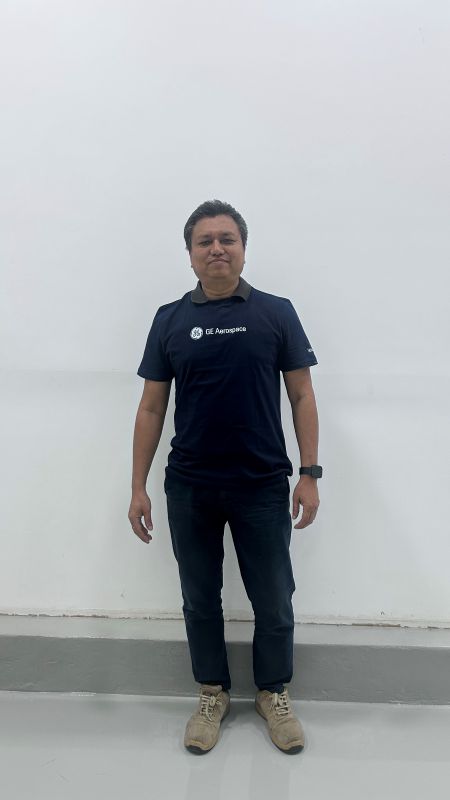
He recalls one young student, Nayana, whose single parent was unable to provide funds or stability. “For many workers, school is somewhere to keep their kids occupied while they work,” he says. “But her parent was very passionate about learning for Nayana, and she was a very good student.” Yet she’d disappear for stretches at a time. “She often changed schools, struggled with English, faced a lot of other challenges.” Thapa continued to offer help and, with the company’s support — including free education, housing, and exam preparation — helped Nayana pursue her STEM education through high school and into university, where she earned an electrical engineering degree. A few years later, Thapa received a phone call from Nayana. “When she said, ‘I just joined this company as a software engineer — I couldn’t have done it without you,’” he recalls, “well … it really touched my heart.”
Thapa’s fellow volunteer at NALI, data engineer Nishita Dash, joined GE Aerospace out of college in 2022, when her only volunteer work had been with animals. “But at NALI, I realized kids aren’t really so different,” she says. “I believe animals are pure souls and kids are as well. Even their questions have an honesty and simplicity.” Dash looks forward to the platform that Next Engineers will provide to identify and work with schools that most benefit from GE Aerospace’s focus. “At end of the day, volunteering gives me a feeling of contentment,” says Dash. “It’s something I do not only for the kids but also for myself. And I believe Next Engineers will enable us to do this on a much bigger scale.”
Basic Life Skills
Volunteers S. Divya and Anupam Brahma both gravitated to Bengaluru’s Sheila Kothavala Institute for the Deaf (SKID), whose students face challenges in basic communication, as well as financial hardship. Divya’s and Brahma’s formative struggles invest their work with personal meaning.
“My family really struggled. We often didn’t have money for semester’s fees, yet my dad’s mission was to get me educated,” says Divya. “But after tenth grade I still had no idea which direction to take.” She eventually completed her studies in financial management in Salem, Tamil Nadu, specializing in SAP implementation. She landed a job with a company in Hyderabad (an 18-hour train trip from her family home) and became a product architect for enterprise resource planning (ERP) implementation. Once she had a steady job, Divya committed a small part of her salary toward providing education for one child in need per year. And as a GE Aerospace employee in 2022, she found a new mission: providing kids at SKID with basic life skills. “We encourage whatever talent they might have — drawing, painting, writing — while working with them on lip reading, sign language, and whatever they need to face society,” she says.
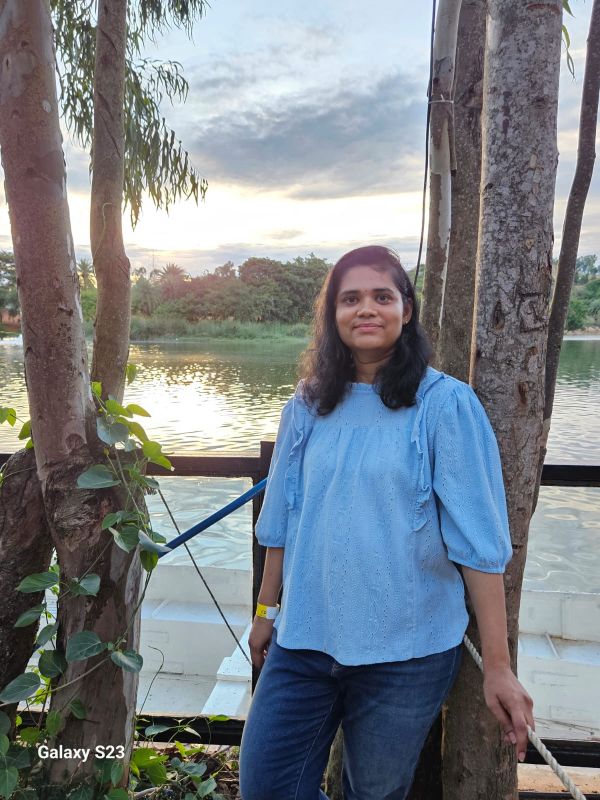
Divya also helps lead a volunteer program at the Indian Institute of Technology Madras and expects Next Engineers to bring the resilience they’ve found at SKID to new schools and new projects. “It will let us be a bridge between the GE Aerospace Foundation and communities truly in need, whether they struggle to communicate or, like I did, to find a career path,” she adds.
Engineers Who Also Teach
Divya’s fellow volunteer at SKID, Anupam Brahma, was raised in a family of four and attended a missionary school that provided one of the region’s better educations. When his parents could no longer pay the tuition, he tried to save on commuting fees by walking the 2.5 kilometers to school, and applied for a scholarship that offered financial assistance as long as he got good grades over the course of the school year. “I still walked to and from school, carrying a heavy pack throughout the scorching heat of summer, but one of the teachers saw and managed to get me a bicycle so that I could come to school on time,” he recalls.
This taught him a core lesson. “When you want to perform, if you get the right support from someone, whether moral or financial, you can really excel,” he says. Brahma went on to win scholarships from the Indian government and worked his way through a mechanical engineering degree. “If each time you look around you find someone to support you, anything is possible,” he adds.
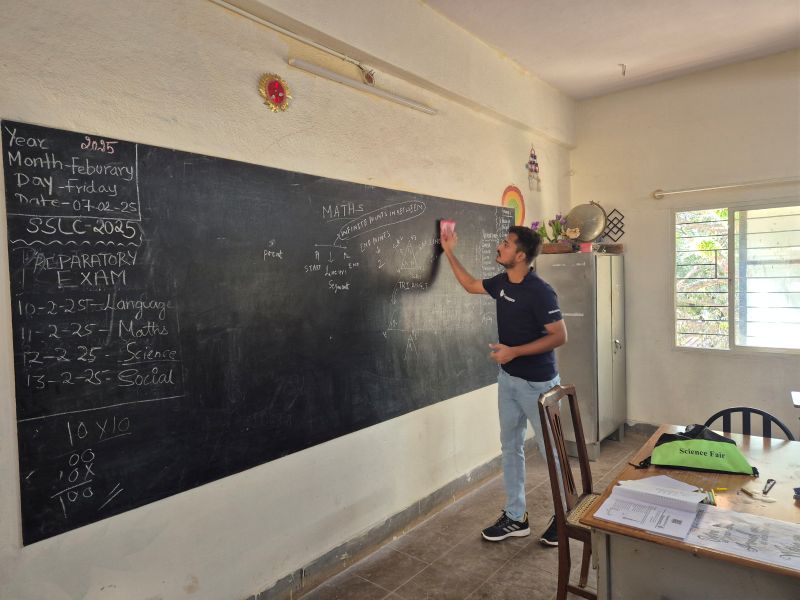
After his first week volunteering at SKID, Brahma was hooked. “These kids are very different from us,” he says. “They cannot speak or hear, and when we began, it wasn’t clear if we could teach them at all. I realized that we start by teaching others what we know, and learn from them what they know. Like sign language.” He feels that such experiments may drive Next Engineers to uplift students in a distinctly engineer-oriented way.
“In engineering, you build up your logical reasoning skills, get equipped to do a lot of tasks, and often switch career paths,” he says. “In a country like India, we need a strong pipeline so that engineers can also teach. This takes tools, experimentation, and the kind of platform where you will be teaching both theory and practice.” Brahma also points to a need for diverse mentors. “Young people need to hear from different voices, from different places, because you’re building the core foundation they’ll need in society.”
And this often starts with moral support. “These kids often arrive with an inferiority complex,” says Prasad Thapa. “They say, “I’m not smart enough, I can’t speak the language, I have no ability.’ I always tell them, ‘You have as much if not more talent than any other students I know. You just haven’t been exposed to what kids in other schools have.’ And sure enough, they prove us right.”

